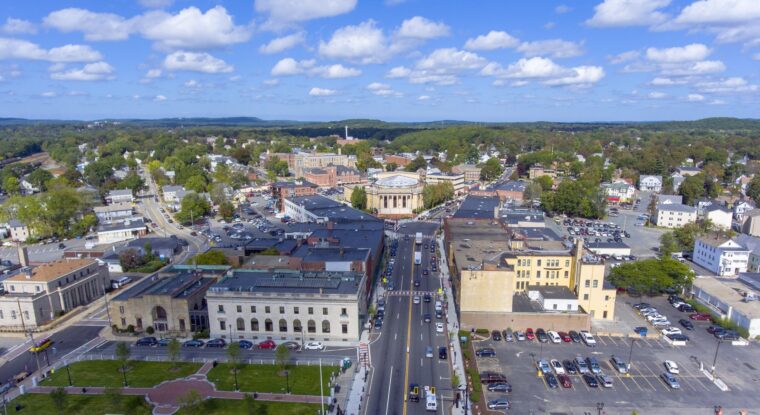
The city of Framingham, Massachusetts, has officially launched the nation’s first pilot networked geothermal system. The system will heat and cool 36 buildings in a neighborhood using ground-source heat pumps without using fossil fuels or emitting greenhouse gases.
Networked geothermal systems use the earth’s subsurface to heat and cool buildings through an underground distribution network. This allows utility providers to avoid relying on traditional heating and cooling options and empowers communities to decarbonize buildings.
Eversource, the utility company spearheading the project, connected 31 residential and five commercial buildings to a 1-mile subterranean loop that collects heat generated from the sun and the earth’s core. Buried pipes circulate liquid that transfers heat from the ground into homes during the winter and removes heat through the same network in the summer. In addition to using geothermal heat pumps, the project will also integrate with existing renewable energy systems in the city.
In April 2023, Framingham was one of 11 communities that received Department of Energy (DOE) support to design and deploy innovative community-scale geothermal system projects. These design projects will:
Replace furnaces and boilers.
Connect with rooftop solar panels and battery storage.
Use wastewater heat from sanitary districts.
Refine existing carbon-dioxide heat pump systems.
Drill test wells.
The pilot program will evaluate whether utility-scale geothermal networks are an affordable, feasible option for heating and cooling homes over the next two heating and cooling seasons. However, geothermal heating and cooling technologies are already growing in popularity as states look into further development. Since 2021, seven states have passed legislation empowering utilities to develop thermal energy network pilot projects.
Photo courtesy of the city of Framingham
The post Massachusetts launches nation’s first networked geothermal system appeared first on Government Market News.
